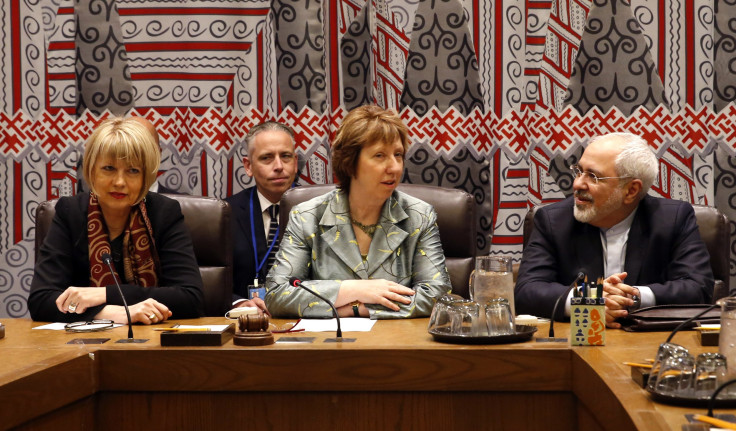Iran Nuclear Program: IAEA Investigation Into Potential Military Dimensions Is Faltering

Leaders in the international community are waiting to see if Iran will agree to limit its nuclear program in exchange for the easing of economic sanctions by the Nov. 24 deadline for the P5+1 talks. But analysts say there is perhaps a more pressing issue, which is completely in the hands of the International Atomic Energy Agency, or IAEA, of the investigation into whether Iran plans to use its nuclear material to develop weapons.
The IAEA has worked for almost 60 years to prevent the proliferation of nuclear weapons, and has spent the last decade addressing the Iran nuclear threat. More recently, it has led a team of investigators to look into the possible military dimensions, or PMD, of Iran's nuclear material. The deal is meant to “strengthen their cooperation and dialogue aimed at ensuring the exclusively peaceful nature" of the program. The investigation was supposed to have been completed by the end of the summer, but the IAEA has not been able to get enough evidence, or answers from Iran, to determine if the country's nuclear program is for peaceful purposes.
The investigation is not part of the P5+1 and Iran Joint Plan of Action deadline. That deal was signed in November 2013 and the implementation of the agreement began in January 2014. The agreement, which was set to end in July with a final deal on the future of Iranian sanctions, was extended until Nov. 24. The IAEA and Iranian deal is part of a separate agreement that was part of a Framework for Cooperation, signed by both parties in November 2013.
Analysts said the Iran-IAEA agreement is more important than the outcome of the deal that will be announced next month.
"It is only if Iran has a dedicated secret program that one would be concerned," Robert Kelley, a fellow at the Stockholm International Peace Research Institute, said. Kelley previously worked on the Iraqi nuclear weapons investigation for the IAEA.
Another expert said the problem is that the people working on the Iran case don't have the resources or the expertise needed to complete the investigation. They lack the necessary intelligence gathering skills, he said. The expert, who asked to remain anonymous because he is not authorized to speak on the matter, said the IAEA has one person looking into Iran’s centrifuges and two people looking at the potential for weaponization of its nuclear material.
There is a second issue that Kelley said could cause the entire PMD case to collapse: the information provided to the IAEA, almost exclusively by the U.S. and the U.K., is not enough to prove Iran has a clandestine nuclear weapons program. That information is in an intelligence document and is being investigated by the IAEA. The agency has asked Iran to respond to the allegations, and says that Tehran's answers were not adequate.
In an interview with Democracy Now!, Kelley told host Amy Goodman that, during his time working for the IAEA team in Iraq, what he “saw being presented to the American people by, say, Colin Powell’s speech to the U.N., it was completely at odds with the truth.” Now, he is seeing a similar trend in regard to IAEA and P5+1 rhetoric on Iranian capabilities, he said.
“There are people who believe that Iran is a threat to the entire region, and any evidence they can develop against them is for that purpose. But I think if you’re coming back to nuclear weapons, are they actually developing nuclear weapons? It’s hard to say,” he said.
Kelley told International Business Times that Iran has agreed to everything that has been asked, but the U.S. is now pressing the country to adhere to inspections that were never part of the original agreement. Members of Congress, Kelley said, are using the Iranian reaction to these demands to claim that Iran is not cooperating on the nuclear issue.
"That is simply not true," he said.
An IAEA statement in July said the agency was pleased with Iran's progress and cooperation under the Joint Plan of Action -- the agreement the country made with the P5+1, according to Kelley. The statement did not mention the PMD case between the IAEA and Iran, which, according to Kelley, is "a clear sign that moving toward the end of these negotiations, the PMD [case] may be swept under the rug."
© Copyright IBTimes 2024. All rights reserved.




















